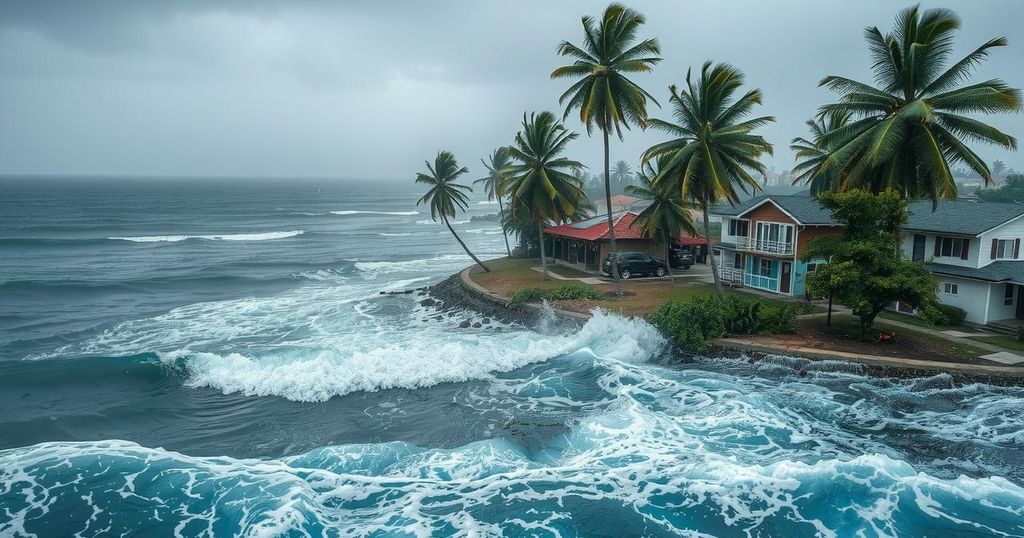Cyclone Chido Devastates Mozambique with 94 Fatalities and Extensive Damage

Cyclone Chido has killed 94 people in Mozambique, resulting in 768 injuries and affecting over 622,000 individuals since its landfall last week. It caused significant damage to schools and health facilities, displacing students and limiting healthcare access. The cyclone also hit Mayotte severely before reaching Mozambique, emphasizing the far-reaching impacts of climate change on cyclones.
Cyclone Chido has tragically resulted in the loss of 94 lives in Mozambique since its landfall in the eastern African nation last week, as reported by local authorities. The National Institute of Risk and Disaster Management (INGD) further indicated that there have been 768 reported injuries and over 622,000 individuals affected by the cyclone, showcasing the extensive impact of this natural disaster.
The cyclone struck on December 15, packing powerful winds reaching 260 km/h (160 mph) and releasing 250mm of rainfall within the initial 24 hours. Prior to reaching Mozambique, Cyclone Chido had caused significant devastation in the French Indian Ocean territory of Mayotte, subsequently impacting regions in Malawi and Zimbabwe.
In Mozambique, the storm predominantly affected the northern provinces, particularly Cabo Delgado, Niassa, and Nampula, regions which frequently face the wrath of cyclones. The INGD reported damaging repercussions on the local education and health sectors, with over 109,793 students displaced and significant destruction to school facilities. Additionally, 52 sanitary units were impaired, raising concerns over accessibility to crucial health services, especially in areas where healthcare access was already precarious before the cyclone.
The occurrence of Cyclone Chido is another stark reminder of the increasingly severe effects of climate change on natural weather events. Tropical cyclones, characterized by strong winds, heavy rainfall, and storm surges, pose a serious threat to both infrastructure and human lives. The Intergovernmental Panel on Climate Change (IPCC) has emphasized that human activities have contributed to an increase in precipitation associated with such storms, and enhanced intensity has been noted due to climate change. Mozambique’s vulnerability to cyclones is exacerbated by its geography and socio-economic conditions, making it essential for resilient planning and disaster management strategies to mitigate future occurrences.Significant international aid and support operations are critical following such calamities to assist in recovery efforts.
In conclusion, Cyclone Chido has inflicted considerable damage and loss in Mozambique, highlighting the urgent need for improved responses to natural disasters exacerbated by climate change. With significant casualties and widespread disruption to educational and healthcare systems, the government of Mozambique is mobilizing resources for recovery. As authorities assess the ongoing damage and provide necessary aid, the impact of climate change on such severe weather events remains a pressing concern that governments worldwide must address.
Original Source: www.bbc.com








